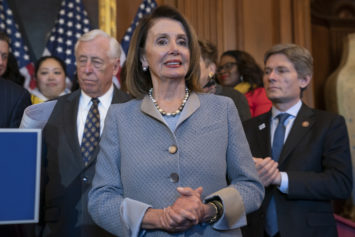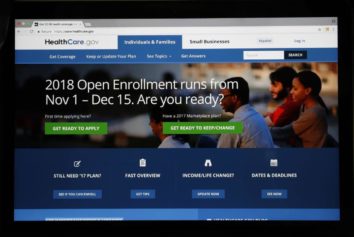House Republicans and Senate Democrats unveiled budget proposals that display their radically different outlooks on the American economy and what steps need to be taken to bring the country to fiscal stability.
While neither plan has any chance of passing into law because they require the approval of the other side and President Barack Obama, they do present the public with the Democratic and Republican priorities.
Democrats said the GOP budget, crafted by Rep. Paul Ryan of Wisconsin, was merely a repeat of the policies and priorities that were proposed by Ryan and Mitt Romney during the 2012 election—and soundly rejected by the American people.
“This budget reflects the same skewed priorities the Republican Party has championed for years — the same skewed priorities Americans rejected in November,” Senator Harry Reid, the majority leader, said in remarks on the Senate floor yesterday. “We’ve seen this show before.”
But Ryan basically said the election results didn’t matter.
“The election didn’t go our way — believe me I, I know what that feels like,” Ryan said at a news conference, where he was asked repeatedly why his party was doubling down on proposals that the American people appeared to have rejected in November.
“That means we surrender our principles? That means we stop believing in what we believe in?” he said, continuing: “We think we owe the country a balanced budget. We think we owe the country solutions to the big problems that are plaguing our nation: a debt crisis on the horizon, a slow-growing economy, people trapped in poverty. We’re showing our answers.”
The Republicans would balance the budget in 10 years and cut spending by $4.6 trillion through 2023, in large part by repealing many of President Obama’s signature legislative accomplishments: repealing the Obamacare by eliminating the subsidized insurance exchanges and Medicaid expansion that make up the core of the law, and turning Medicare into a voucher system. The Ryan budget also would do away with Wall Street laws that Obama championed and cancel the financing Obama sought for a high-speed rail network.
Meanwhile, the Democratic budget, crafted by Sen. Patty Murray of Washington, chairman of the Senate Budget Committee, called for a new $100 billion economic stimulus initiative for job training and repair to roads and bridges. Democrats would pay for the stimulus by closing $1 trillion worth of loopholes in the tax code for large corporations and wealthy individuals and save an additional $1 trillion by cutting spending—with a quarter of those cuts coming from the Pentagon.
If the House passed Ryan’s budget and the Senate passed Murray’s budget, the two versions could go to committee, where legislators could work out the differences. But considering Washington’s inability to negotiate anything and the vast difference between the two sides, nobody expects that to happen.
“There’s no reason why anyone should be very optimistic after watching the last four years of this process,” former Republican House Budget Committee chairman and Office of Management and Budget Director Jim Nussle, who is now with the Committee for a Responsible Federal Budget, told CBS News. “It tends to lend itself to being more pessimistic. But it’s not impossible that a ‘grand bargain’ could be reached that would include all this.”

